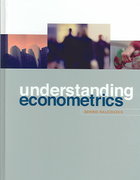Question
Below is the abstract of a recent NBER working paper entitled Organ Allocation Policy and the Decision to Donate by Judd Kessler and Alvin Roth:
Below is the abstract of a recent NBER working paper entitled "Organ Allocation
Policy and the Decision to Donate" by Judd Kessler and Alvin Roth:
Organ donations from deceased donors provide the majority of transplanted organs in the United States, and one deceased donor can save numerous lives by providing multiple organs. Nevertheless, most Americans are not registered organ donors despite the relative ease of becoming one. We study in the laboratory an experimental game modeled on the decision to register as an organ donor, and investigate how changes in the management of organ waiting lists might impact donations. We find that an organ allocation policy giving priority on waiting lists to those who previously registered as donors has a significant positive impact on registration.
- The health of the organ donor can significantly impact the value of the donated organ. Diabetic donors, for instance, produce lower quality organs than non-diabetic donors. What effect would the Kessler-Roth scheme have on the average quality of donated organs? How would this affect the potential benefits of registering as an organ donor?
2,Suppose the Kessler-Roth scheme is implemented and effective in increasing the number of organs harvested for transplantation. How does the scheme affect the welfare of patients awaiting organ transplants who are not registered organ donors? [Hint: there are two competing effects.]. .
Step by Step Solution
There are 3 Steps involved in it
Step: 1

Get Instant Access to Expert-Tailored Solutions
See step-by-step solutions with expert insights and AI powered tools for academic success
Step: 2

Step: 3

Ace Your Homework with AI
Get the answers you need in no time with our AI-driven, step-by-step assistance
Get Started


